Existing User Log In
New User Registration
Register for a free account to gain full access to the VGChartz Network and join our thriving community.



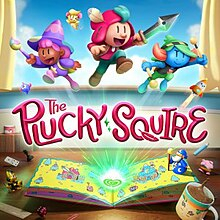

America - Front
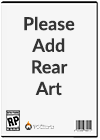

America - Back

All Possible Futures
Action-Adventure
 (Add Date)
(Add Date) (Add Date)
(Add Date) (Add Date)
(Add Date)
| Owners: | 0 |
| Favorite: | 0 |
| Tracked: | 0 |
| Wishlist: | 0 |
| Now Playing: | 0 |
Like many others, children's books served as a wellspring of creativity and inspiration for me growing up. Beyond the wonderful illustrations and deliberate prose from the best of them, they can also serve as formative moral lessons that ultimately show good triumphing over evil. But, as with any genre, certain tropes can get stale. The Plucky Squire's main antagonist, Humgrump the magician, thinks so too as the running series' hero, Jot, confronts him – once again – atop a tall tower to thwart his evil plans – once again. Except something is different this time. Having realized he's the perpetual loser in this fictional series, Humgrump changes the rules: thanks to "metamagic," he's able to literally push Jot out of his own story. A happy ending isn't so certain anymore.
For anyone who's even partially familiar with the game, this literal 4th-wall-bursting moment won't come as a surprise. That doesn't tarnish the magic though. Before even seeing Humgrump on a page, developer All Possible Futures wholly sells the children's book affect. Jot's vaunted heroism, his coterie of trusty allies, and Phillip Bretherton's pleasant narration are displayed within the psychical two-page spreads of this developing Plucky Squire hardcover; in essence, what Squire's bold font and expressive colors are emulating for children's storybooks is akin to Cuphead's Fleischer-styled rubber hose animation. The typical viewpoint across these crisp pages is the original Legend of Zelda's zoomed-out perspective but with ample deviations, like 2D Mario side-scrolling bits, shifting the book's usual horizontal layout to vertical, and other creative tricks for its various mini-games. 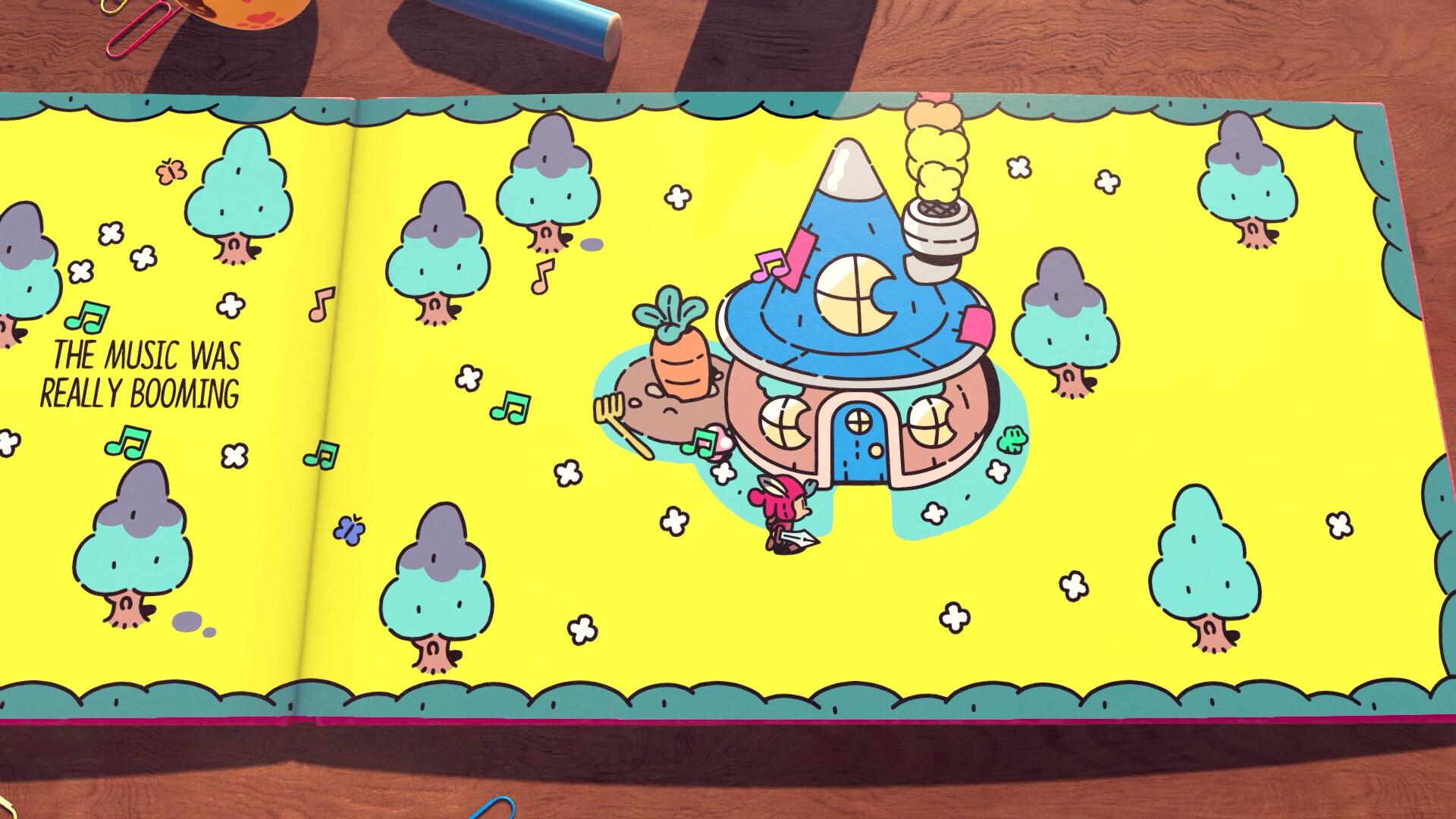
Spitting Jot out of his book results in fundamental changes – visually and mechanically. The 2D watercolor illustrations within the Land of Mojo transmogrify into a detailed & realistic 3D world. While not quite as magical, the desk of Sam, the child auteur behind The Plucky Squire series, has a plethora of fun knickknacks and doodads. Picture the logic as being similar to Toy Story: 3D Jot is roughly the size of a LEGO man flanked on three sides by Sam's collection of paint tools, toys, cardboard castles, Post-It notes, and so on and so forth. It's the clutter of a creative, messy kid made into a convenient series of platforms for you to scale. And just as the chapters in an adventure book take you to distant lands, so too does Sam (who's never seen) rearrange the look of his workstation over time.
Naturally, getting booted out of his world doesn't keep Jot locked away forever. Some light adventuring and sleuthing eventually leads to him discovering metamagic for himself. With the help of green-swirling portals, whether within the book itself or other flat paper scattered across Sam's desk, you're able to dimension-hop between those realities. This is where the dynamic takes root. The most basic idea can be something like crossing a ravine in the book by jumping out of a portal on one page to another on the next page. But then as new abilities come to light so too do new creative solutions. Flipping to any available page (of that chapter) might not only be a diegetic fast travel system but also hide a couple of unique ideas; likewise, tilting the left/right half of the book can also make a loose boulder slide 'down' to the other page. The sky can feel like the limit.
While that enthusiasm is mostly justified by the brain-breaking concept, its full potential is never reached. This is best exemplified by word puzzles. As a scribe as well as a hero – carrying a fountain pen nib shaped like a double-edged sword, it's fitting that Jot can smack certain highlighted words written on the story page and change them to something else. So, a "gargantuan" stone blocking the path can be altered by finding a more helpful adjective – like "tiny" or "small" – nestled in another sentence nearby. Again, as with tilting, portal-hopping, or other powers, there are wonderful & humorous moments with this; and yet, part of me felt like there could've been greater player expression, like a scaled-down Baba Is You level of complexity. That's the story with these abilities: All Possible Futures – ironically – often nips your wilder ideas in the bud, outside of a few creative jokes here and there.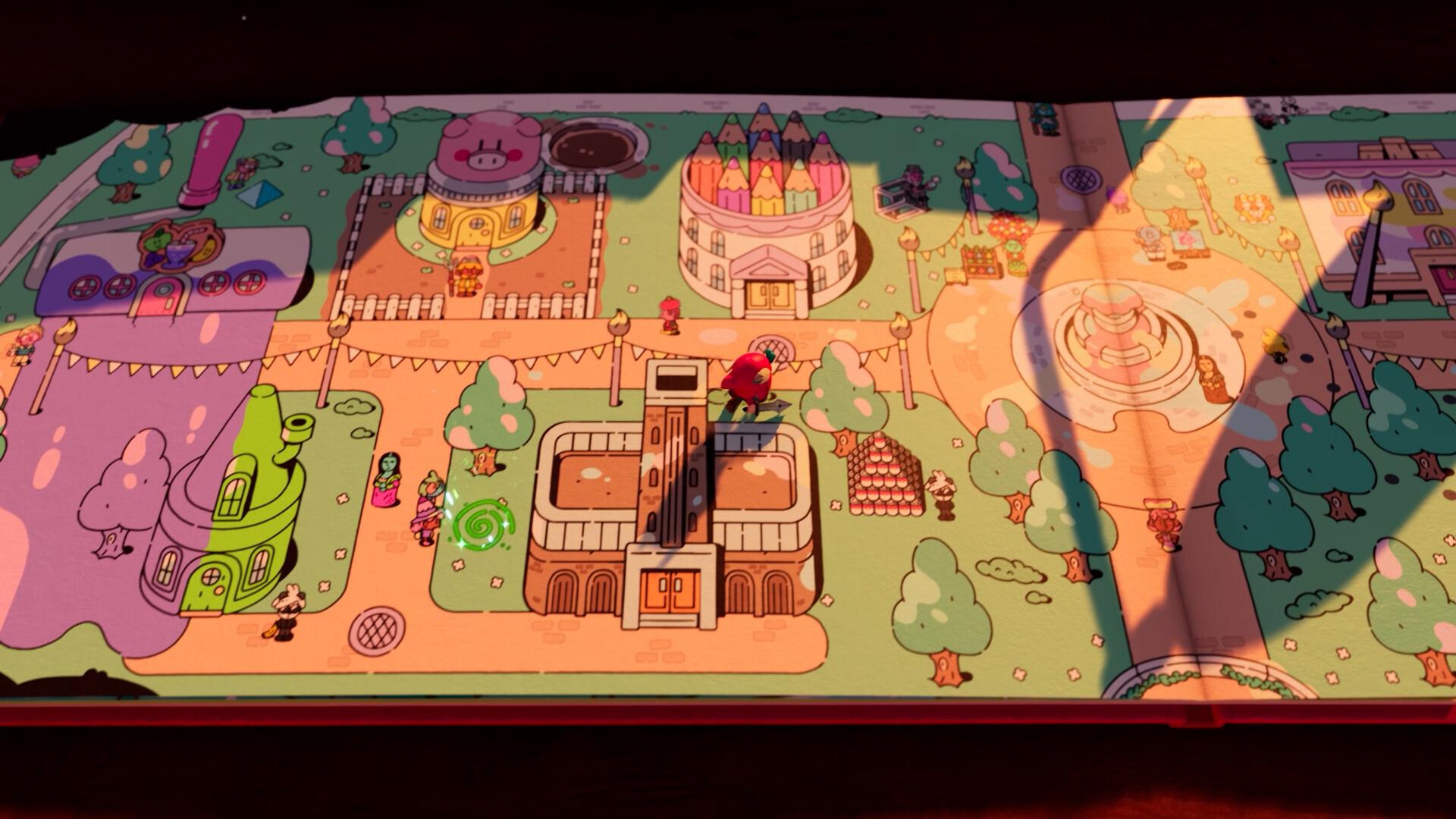
Part of why it feels so constrained is because of how inspired it feels within the typical Zelda formula. That's not to say there's anything bad either. The fundamentals will be familiar to anyone with a passing knowledge of A Link to the Past: slash, roll, jump, sword-throw, along with purchasable moves like spinning slash and jump attack. Go smack enemies, bushes, and trees alike for currency or art gallery collectibles. The basics are simple but snappy and kinesthetically pleasing. The visuals and sound design capture a whimsical air as you "Thwack!" and "Zok!" enemies into puffs of smoke.
The issue is less to do with them working and more to do with promising to evolve into something more. The best example is Jot's bow 'n arrow rental. The initial reaction for 2D Zelda-like veterans would be thinking of the same template as before but with arrows having different effects than your sword-boomerang. So, there's this grand adventure across Sam's desk to reach a discount Magic: The Gathering elven ranger card and have a light RPG fight to secure it. The first issue is this anticlimactic tussle with her already has a predetermined path to victory which you can't lose, so any player expression on your end is stifled. And once the bow's finally acquired, all that's done with it are two quick shooting mini-games. Various mini-game templates, instead of the main Zelda-like structure, comprise the vast majority of boss battles too. Even though I enjoyed some concepts, like the rhythm-stealth segments or Puyo Puyo-themed magic bouts, the over-reliance on them feels so disjointed.
It also doesn't bode well how the rare Zelda-like boss or mini-boss battles are among the few times the standard gameplay feels tense. Squire does a decent job with various accessibility options, separate Story/Adventure modes, and so on, but it would've been great to have seen challenge be a greater focus. I saw more Game Over screens from the sparse mini-games than standard fights across both dimensional planes; even then, its fail state is little more than a stopgap where Bretherton gives a quick pep talk to get Jot or another ally back into the fight. Even with the appeals of this being a light-hearted action/adventure game for (almost) all ages, littering areas with heart pick-ups after taking some damage is too much. Between that and protracted camera pans to every solution on Sam's desk, the default setup has too much coddling for its own good.
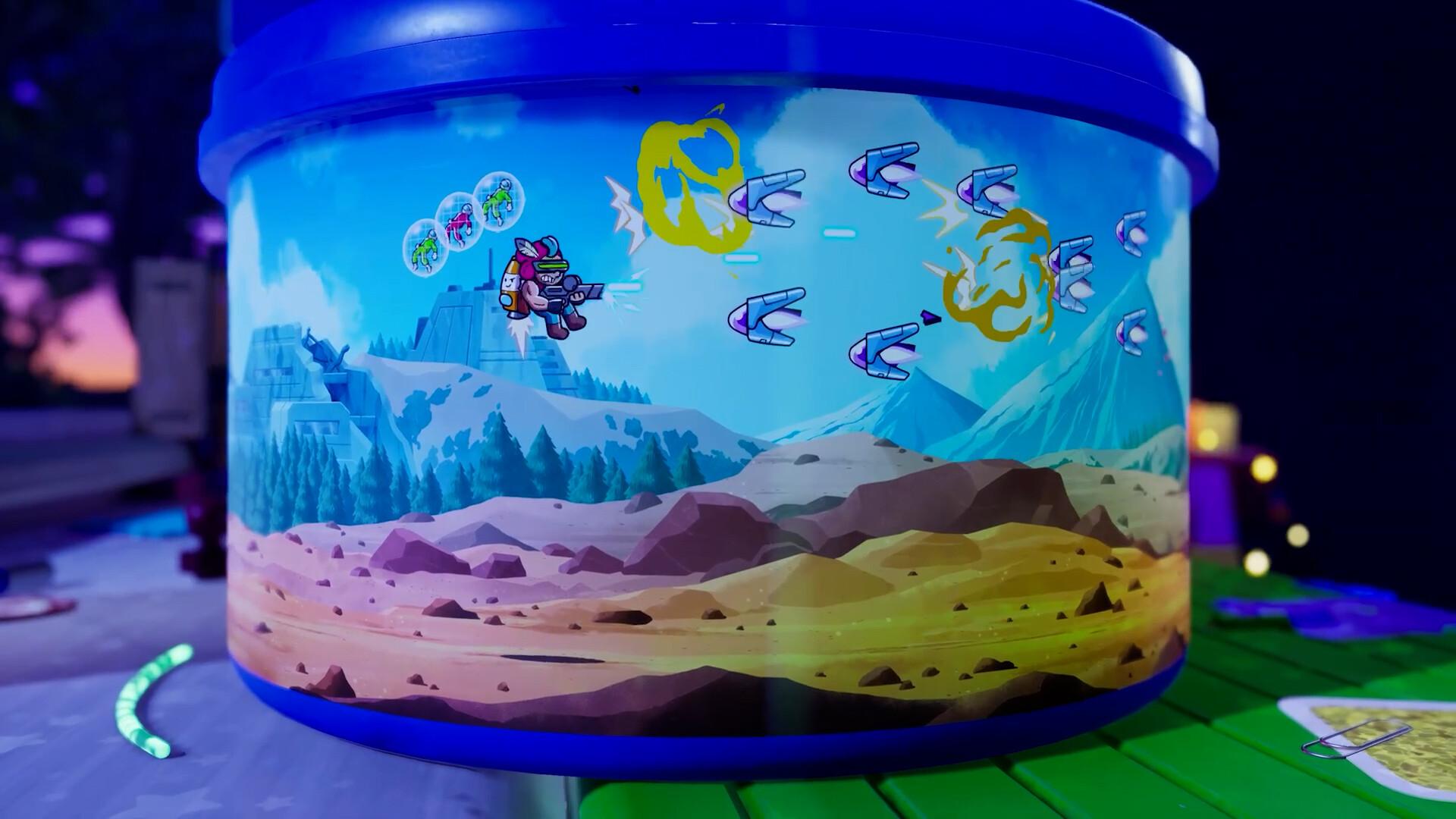
Despite some of these missteps also contradicting Squire's thematic emphasis on creativity, it's still an engaging yarn that's equal parts rousing and playful. Yes, the directed guardrails for many dimension-bending puzzles can be overbearing, but how some solutions are set up and paid off work so damn well. The removal of the 4th wall with a wonderful British narrator is up there with the likes of The Stanley Parable in execution, especially in the final act. And though certain instances of modernized dialogue clashes with the olde-fashioned children's books it's effusively emulating, each side character captures just enough flavor to stand out. Certain storytelling bits, and gameplay conceits by extension, could've breathed a bit more, but those 7-8 hours (non-completionist) are still robust enough in their own right.
It speaks well to The Plucky Squire overall that in spite of several rookie team mistakes the potency of its core conceit remains so engaging. There's something genuinely exciting about altering the state of one's world through words or a different perspective. Each new tweak on the reality-shifting formula builds up to a rather surprising and endearing final act. But upon reaching that point of greater player expression, it's hard not to question the flawed mentality to get there. Was the occasional diversion to a lackluster mini-game worth it? Could there have been greater flexibility in its earlier puzzle-solving or combat? Why not give combat more of a bite? While interrogating occasional missteps makes me see the unused potential of these systems, Jot's journey still remains a charming page-turner that's tough to put down.
Contractor by trade and writer by hobby, Lee's obnoxious criticisms have found a way to be featured across several gaming sites: N4G, VGChartz, Gaming Nexus, DarkStation, and TechRaptor! He started gaming in the mid-90s and has had the privilege in playing many games across a plethora of platforms. Reader warning: each click given to his articles only helps to inflate his Texas-sized ego. Proceed with caution.









